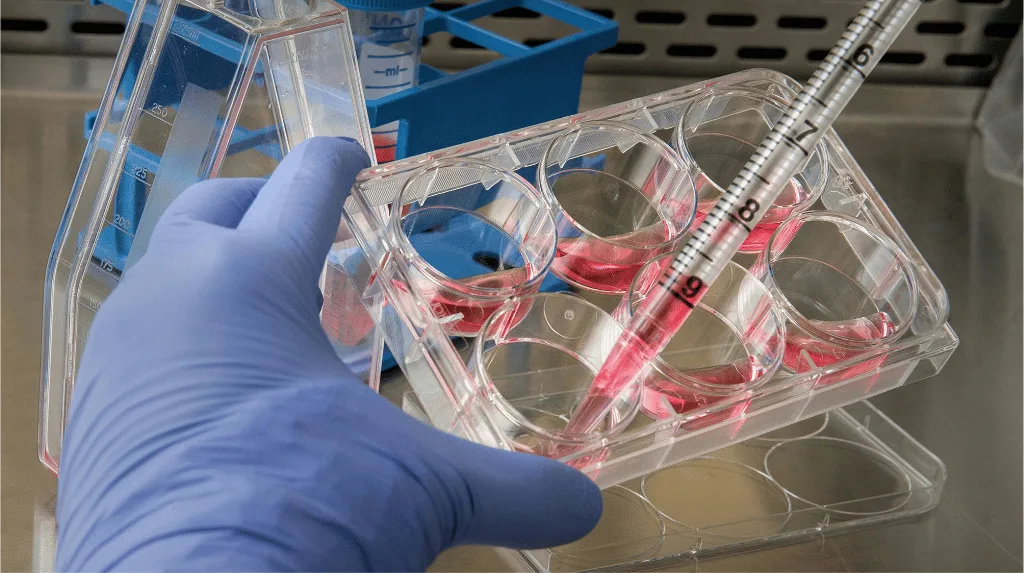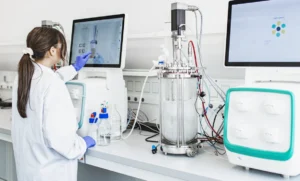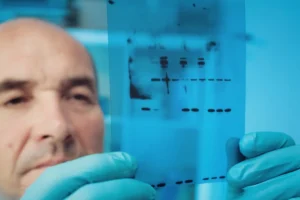Primary and cultured cells are fundamental to a wide range of life science research, from basic cellular biology to advanced therapeutic development. These cells provide more physiologically relevant data compared to immortalized lines, enabling more accurate modeling of in vivo conditions. Whether investigating disease mechanisms, testing drug candidates, or studying cell-to-cell interactions, using high-quality cells is essential for reproducible and meaningful results.
STEMCELL Technologies offers a comprehensive portfolio of primary and cultured cell products, designed to meet the needs of scientists working in diverse research areas. While this article highlights select products available in South Africa through Apex Scientific, researchers can request access to the full STEMCELL Technologies range.
Why Primary and Cultured Cells Matter in Research
Primary cells are derived directly from living tissue, preserving many of the characteristics and functions found in vivo. Cultured cells, whether primary or passaged, provide a controlled platform for experimentation. Both types offer key advantages over immortalized cell lines:
- Physiological relevance – More accurately mimic tissue-specific functions, making results more translatable to clinical settings.
- Application diversity – Suitable for regenerative medicine, immunology, oncology, and vascular biology studies.
- Customisation – Available from a variety of donors and tissue sources to suit specific research needs.
However, sourcing high-quality cells can be challenging due to donor variability, transport requirements, and the need for strict quality control. STEMCELL Technologies addresses these issues with standardized isolation protocols, rigorous testing, and optimized cryopreservation methods.
Featured Products Available Through Apex Scientific
While the complete STEMCELL Technologies range is available upon request, we currently feature three key products that represent the diversity and quality of their portfolio.
Human Peripheral Blood CD8+ T Cells, Frozen
CD8+ T cells are a critical component of the adaptive immune system, playing a central role in identifying and destroying infected or cancerous cells. These frozen, purified T cells are isolated from human peripheral blood using proprietary methods that maintain viability and functional integrity.
Applications:
- Immuno-oncology research
- Viral immunity studies
- Cytotoxicity assays
- T cell activation and expansion protocols
Key Benefits:
- High purity and viability after thawing
- Suitable for immediate downstream applications
- Donor information available for experimental consistency
Human Platelet Lysate, Fibrinogen-Depleted
Human platelet lysate (hPL) is a serum alternative used to support the expansion of various primary cells, including mesenchymal stem cells (MSCs). This fibrinogen-depleted formulation prevents gel formation, making it suitable for direct use without additional processing.
Applications:
- MSC culture and expansion
- GMP-compliant cell therapy workflows
- Research involving primary fibroblasts or endothelial cells
Key Benefits:
- Xeno-free supplement for clinical and research use
- Consistent lot-to-lot performance
- Reduced risk of contamination compared to animal sera
Human Umbilical Vein Endothelial Cells (HUVECs)
HUVECs are widely used as a model system for vascular biology and angiogenesis research. These primary endothelial cells retain the functional characteristics of vascular tissue, including barrier formation and response to growth factors.
Applications:
- Angiogenesis assays
- Endothelial cell biology
- Drug screening for vascular targeting agents
- Inflammation and cardiovascular research
Key Benefits:
- High viability and purity
- Preserved endothelial marker expression
- Compatible with a range of cultureware and media formulations
Technical Considerations for Working with Primary and Cultured Cells
When incorporating primary and cultured cells into experimental workflows, several best practices help ensure optimal performance and reproducibility:
- Thawing and Recovery – Follow manufacturer protocols carefully to preserve cell viability. Rapid thawing in a 37°C water bath followed by gradual dilution in pre-warmed medium is often recommended.
- Culture Conditions – Maintain appropriate CO₂ levels, temperature, and humidity to mimic physiological environments.
- Media Selection – Use culture media or supplements specifically formulated for the cell type. For example, hPL is an ideal xeno-free alternative for MSC expansion.
- Minimizing Passage Number – Prolonged passaging can alter cell phenotype; keep passages low for maximum physiological relevance.
- Cryopreservation – Use optimized freezing media and controlled-rate freezing methods to maintain post-thaw functionality.
Broader STEMCELL Technologies Primary and Cultured Cell Portfolio
The highlighted products represent only a fraction of the STEMCELL Technologies offering. The complete range includes:
- Immune cells – T cells, B cells, NK cells, and monocytes from human and animal sources
- Endothelial and epithelial cells – For vascular, respiratory, and barrier research
- Neural cells – Primary neurons, astrocytes, and glial cells for neuroscience studies
- Stem cells – Hematopoietic, mesenchymal, and pluripotent cells from multiple donors
By sourcing these products through Apex Scientific, South African laboratories gain access to high-quality, research-ready cells without the logistical challenges of direct international procurement.
Applications Across Research Fields
Immunology and Immunotherapy
Primary immune cells, such as CD8+ T cells, are essential for understanding immune system responses, testing immunomodulatory drugs, and developing cell-based therapies.
Regenerative Medicine
Human platelet lysate offers a growth-supportive, xeno-free supplement for expanding stem cells under conditions suitable for pre-clinical and clinical applications.
Vascular Biology
HUVECs provide a reliable in vitro model for studying endothelial function, angiogenesis, and vascular drug delivery systems.
Translational Research
Using primary and cultured cells bridges the gap between basic research and clinical application, providing data that is more predictive of patient responses.
Conclusion
High-quality primary and cultured cells are indispensable for modern biomedical research. STEMCELL Technologies delivers rigorously tested, application-specific cell products that empower scientists to generate reproducible, clinically relevant data.
While this article highlights Human Peripheral Blood CD8+ T Cells, Human Platelet Lysate (Fibrinogen-Depleted), and Human Umbilical Vein Endothelial Cells, the full range is available upon request. Explore the Primary and Cultured Cells category on STEMCELL Technologies or browse our Apex Scientific product listings to find the best fit for your research needs.






